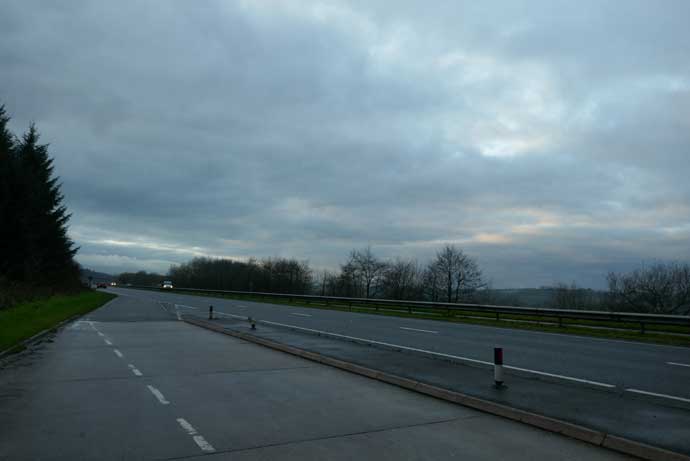If this isn't the longed-for Zombie Apocalypse, it must be the Friday before Christmas, before the shops open. And yes, there among the headlines, the annual warning that the roads might be congested out of London tonight. Oh, the importance of ritual! The "Christmas survival guides" and the round-ups of the year. It seems odd to me that faith in a divinity, or a divine presence, or a whatever, is so widely required to meet the exact specifications laid down by a religious dogma. Even the Nicene Creed, whichever version you take, has the subtext: We believe what we've been told to believe.
Maybe the shopping, wrapping, gathering together around food and presents, the TV-ad representations of weather rarely seen in these islands, maybe all of that is closer to the original spirit of the winter festival - sorry, Spirit of the Winter Festival - than the reason we're supposed to give for turning up in Church in the middle of the night and sheepishly greeting our neighbours before bellowing out the last verse of Oh Come All Ye Faithful.
There's an interesting book, and I'm just finishing it now, on the whole Modern-Day Christianity thing - how it is possible to retain a belief in all of that in the face of reason, et cetera. The title says it all: Unapologetic: Why, despite everything, Christianity can still make surprising emotional sense by Francis Spufford (Faber and Faber, 2012). The idea seems to be that not everything needs to make sense to be a means of connecting to something profound. Parables don't need a basis in fact, but in truth.
Which is where we remember that while science insists on laying down its own terms for any debate, dictating rationality and its limits, the rest of us remain free to read anything we like into the dawn chorus.
Except in the sense that new-style revolutions continue beneath the surface. The indignation seems to be today's dominant emotion - we're all ready and waiting to be shocked by the next headline - but change seems to be a more considered, more gradual thing. Indignation can become a reflex - and news a supplier of cues for those reflexes - but somewhere down there, quietly, while we're all ranting, the world quietly changes.
As if we've evolved superficial emotions as a safety valve. As if the world is a lot more stable, or at least slow-moving, or more importantly capable of accommodating change without revolution-style convulsions, than all the screens would have us believe.

